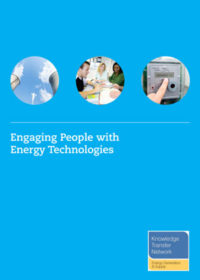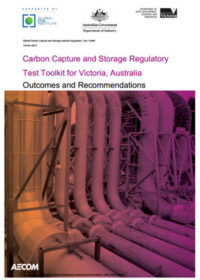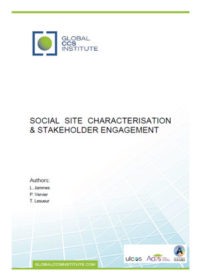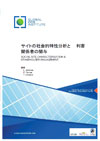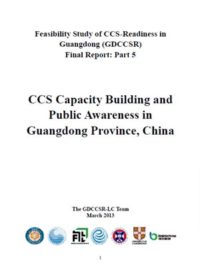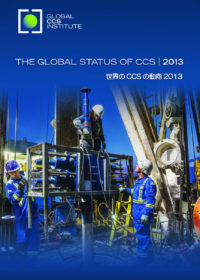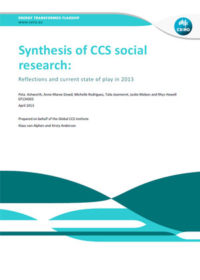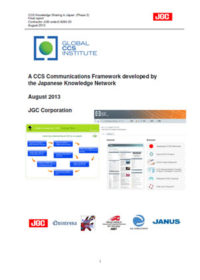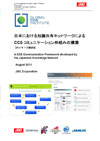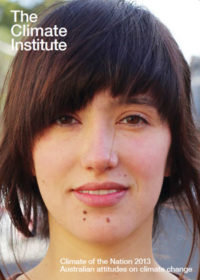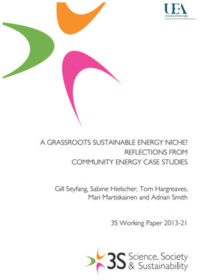Resources
Publications
Our publications, reports and research library hosts over 500 specialist reports and research papers on all topics associated with CCS.
View our Publication Library Disclaimer.
Filter by
Engaging people with energy technologies
1st March 2014
Topic(s): Carbon capture use and storage (CCUS), Energy efficiency, Public engagement, Wind energy
With the support of a number of experts in this area, the Energy Generation and Supply Knowledge Transfer Network (EG&S KTN) has produced this report, which provides an overview of the current research on public perception and engagement with energy technologies and how this may impact on the energy industry.
Disclaimer
The content within the Global CCS Institute Publications, Reports and Research Library is provided for information purposes only. We make every effort and take reasonable care to keep the content of this section up-to-date and error-free. However, we make no claim as to its accuracy, currency or reliability.
Content and material featured within this section of our website includes reports and research published by third parties. The content and material may include opinions and recommendations of third parties that do not reflect those held by the Global CCS Institute.
Carbon capture and storage regulatory test toolkit for Victoria, Australia: outcomes and recommendations
19th November 2013
Topic(s): Carbon capture use and storage (CCUS), Policy law and regulation, Public engagement
In 2013, the Victorian and Australian governments, in collaboration with the Global CCS Institute, deployed the Institute’s CCS Regulatory Test Toolkit (the toolkit) for the first time in Australia. The toolkit is a regulatory test exercise that aims to help governments establish whether their carbon capture and storage (CCS) legislative and regulatory frameworks are fit for purpose, providing a low-cost, low-risk approach to testing regional and national legislation and regulatory systems for CCS projects. The toolkit was originally developed for the Scottish Government and sponsored by the Global CCS Institute. It has since been deployed in jurisdictions such as Romania, Trinidad and Tobago, and Malaysia.
Disclaimer
The content within the Global CCS Institute Publications, Reports and Research Library is provided for information purposes only. We make every effort and take reasonable care to keep the content of this section up-to-date and error-free. However, we make no claim as to its accuracy, currency or reliability.
Content and material featured within this section of our website includes reports and research published by third parties. The content and material may include opinions and recommendations of third parties that do not reflect those held by the Global CCS Institute.
Social site characterisation & stakeholder engagement
14th November 2013
Topic(s): Carbon capture use and storage (CCUS), Public engagement, Social research
The overall objective of this report is to propose a methodology targeted at creating the most favourable negotiating environment for all project stakeholders—including the project developer—to agree on project acceptability conditions. This process has been partially applied to a real CO2 Capture and Storage project: the ULCOS project (see below). This report provides four in-depth case studies detailing the critical early steps that a project most go through to first understand, then manage, the social environment in which a project is taking place. The case studies capture the context for each step in the process, as well as examples of the methodologies used, the results achieved and the lessons learned and recommendations for other projects. The case studies cover four stages in two phases, the first three explain the key stages in the social site characterisation phase, the fourth the enactment of a stakeholder engagement strategy.
Disclaimer
The content within the Global CCS Institute Publications, Reports and Research Library is provided for information purposes only. We make every effort and take reasonable care to keep the content of this section up-to-date and error-free. However, we make no claim as to its accuracy, currency or reliability.
Content and material featured within this section of our website includes reports and research published by third parties. The content and material may include opinions and recommendations of third parties that do not reflect those held by the Global CCS Institute.
サイトの社会的特性分析と 利害関係者の関与
14th November 2013
Topic(s): Carbon capture use and storage (CCUS), Public engagement
報告書の背景
一般的な考え方とは違い、社会的受容とは「大多数の市民がプロジェクトを受容すること」を意味するものではない。プロジェクトの社会的受容のレベルは、対象となる集団について、「賛成」または「反対」という行動についての共通のビジョンを用いた調査結果には基づいていない。これは、少数派だろうが受容の条件はそれぞれの利害関係者に特有であるということを無視しているため、民主的な考え方としては不備がある。少数派の反対でプロジェクト全体を阻止するのに十分であるということは繰り返し確認されてきた。
実際のところ、社会的受容とは、プロジェクトの利害関係者が協力して、所定の時間内で、プロジェクトを固有の自然と人間の環境に円滑に統合させるために必要な、最低限の条件を定義するプロセスの結果である。(Caron-Malenfant & Conraud、2009年)。
Disclaimer
The content within the Global CCS Institute Publications, Reports and Research Library is provided for information purposes only. We make every effort and take reasonable care to keep the content of this section up-to-date and error-free. However, we make no claim as to its accuracy, currency or reliability.
Content and material featured within this section of our website includes reports and research published by third parties. The content and material may include opinions and recommendations of third parties that do not reflect those held by the Global CCS Institute.
CCS capacity building and public awareness in Guangdong Province, China
18th October 2013
Topic(s): Capacity development, Carbon capture use and storage (CCUS), Project financing, Public engagement
Based on the outcomes of our study, the GDCCSR project has shown the necessity, and provided feasible solutions, for the development of CCS and CCSR in Guangdong, and drafted a roadmap that includes action plans and policy recommendations. We would like to share our experience in promoting regional CCS developments, enhancing knowledge exchange, and building up local expertise. In order to implement CCS in Guangdong and other parts of China in the future, we consider that extra work is required to disseminate the findings of this project more widely.
The capacity building activities, based on experiences from other researchers, were usually focussed on: workshops; personnel exchange programs; technical assistance for planned pilot CCS activities; information exchange; facilitation of technology transfer; training programs; study tours on regulations and standards; summer school programs; information and knowledge sharing programs; support for feasibility studies; and providing opportunities for engineers to work on CCS demonstration projects. The GDCCSR project team has been working on various activities in Guangdong, such as CCS meetings & workshops, information and knowledge sharing websites & blogs, information exchange with experts from industrial companies, visiting power plants etc. In the future, we are aiming to take further action and employ other methods to continue capacity building activities.
Disclaimer
The content within the Global CCS Institute Publications, Reports and Research Library is provided for information purposes only. We make every effort and take reasonable care to keep the content of this section up-to-date and error-free. However, we make no claim as to its accuracy, currency or reliability.
Content and material featured within this section of our website includes reports and research published by third parties. The content and material may include opinions and recommendations of third parties that do not reflect those held by the Global CCS Institute.
世界のCCSの動向: 2013
10th October 2013
Topic(s): Carbon capture use and storage (CCUS), CO2 capture, CO2 storage, CO2 transport, Public engagement
世界のCCSの動向:2013は、世界のCCSに関する進捗や直面する課題について当インスティテュートが年次で纏めているフラッグシップレポートで、今回が第5版となる。本レポートでは、CCSプロジェクトの開発状況、政策や規制枠組み、CCSを構成する技術、社会的受容などについての概況を報告する。
Disclaimer
The content within the Global CCS Institute Publications, Reports and Research Library is provided for information purposes only. We make every effort and take reasonable care to keep the content of this section up-to-date and error-free. However, we make no claim as to its accuracy, currency or reliability.
Content and material featured within this section of our website includes reports and research published by third parties. The content and material may include opinions and recommendations of third parties that do not reflect those held by the Global CCS Institute.
Synthesis of CCS social research: Reflections and current state of play in 2013
9th October 2013
Topic(s): Carbon capture use and storage (CCUS), Public engagement, Social research
Carbon capture and storage (CCS) has a critical role to play in mitigating climate change and providing energy security. Fundamental to that advocacy role is a commitment to sharing the best possible research and information about the technology to our members and the wider public. This report has been designed to provide an accessible summary of an extremely comprehensive body of research. It is hoped that the review will provide a quick and helpful guide to emerging thinking and best practices for those working to improve public understanding and acceptance of CCS technology, with extended bibliographical references to assist with further research.
Disclaimer
The content within the Global CCS Institute Publications, Reports and Research Library is provided for information purposes only. We make every effort and take reasonable care to keep the content of this section up-to-date and error-free. However, we make no claim as to its accuracy, currency or reliability.
Content and material featured within this section of our website includes reports and research published by third parties. The content and material may include opinions and recommendations of third parties that do not reflect those held by the Global CCS Institute.
A CCS communications framework developed by the Japanese Knowledge Network
8th October 2013
Topic(s): Carbon capture use and storage (CCUS), Communication, Public engagement
This report describes Phase 2 of a multi-phase project undertaken by the Japanese Knowledge Sharing Network, entitled “Development of a Knowledge Sharing Test Bed for CCS in Japan”. The focus of the network has been to:
1) Develop and test a public outreach program for carbon capture and storage (CCS), based on expert arguments developed in Phase 1 of the project on how to explain the case for CCS through a communications framework.
2) Address knowledge gaps identified on the topic of CO2 storage, in particular seismicity induced by injection of CO2, and the impact of seismicity on any part of the CCS process.
Other Phase Reports
- Developing a CCS communications framework for Japan - Phase 1, August 2011
- Development of a CCS communications framework for Japan - Phase 3, June 2014
Disclaimer
The content within the Global CCS Institute Publications, Reports and Research Library is provided for information purposes only. We make every effort and take reasonable care to keep the content of this section up-to-date and error-free. However, we make no claim as to its accuracy, currency or reliability.
Content and material featured within this section of our website includes reports and research published by third parties. The content and material may include opinions and recommendations of third parties that do not reflect those held by the Global CCS Institute.
日本における知識共有ネットワークによるCCS コミュニケーション枠組みの構築
1st August 2013
Topic(s): Carbon capture use and storage (CCUS), Public engagement
本報告書は、日本における知識共有ネットワークが実施した複数のフェーズにわたり実施された、「日本における知識共有ネットワークによるCCSコミュニケーション枠組みの構築」プロジェクトの第2 フェーズについて示したものである。実施内容は次のとおりである。
(1). プロジェクトの第1 フェーズで行った、「CCS をコミュニケーションの枠組みを通じてどのように説明すべきか」という専門家の議論に基づき、CO2 回収・貯留(以下「CCS」)に関する一般市民向けアウトリーチプログラムを作成・試験する。
(2). CO2貯留に関する問題のうち、特に、CO2圧入による誘発地震と、地震がCCSに与える影響についての「知識ギャップ」に対処する。
Disclaimer
The content within the Global CCS Institute Publications, Reports and Research Library is provided for information purposes only. We make every effort and take reasonable care to keep the content of this section up-to-date and error-free. However, we make no claim as to its accuracy, currency or reliability.
Content and material featured within this section of our website includes reports and research published by third parties. The content and material may include opinions and recommendations of third parties that do not reflect those held by the Global CCS Institute.
Workers wanted: the EU wind energy sector skills gap
1st August 2013
Topic(s): Capacity development, Education, Public engagement, Wind energy
In June 2013 the European Council agreed on a comprehensive approach to combat youth unemployment. This report shows that the European wind industry can play a key role in combatting unemployment.
Disclaimer
The content within the Global CCS Institute Publications, Reports and Research Library is provided for information purposes only. We make every effort and take reasonable care to keep the content of this section up-to-date and error-free. However, we make no claim as to its accuracy, currency or reliability.
Content and material featured within this section of our website includes reports and research published by third parties. The content and material may include opinions and recommendations of third parties that do not reflect those held by the Global CCS Institute.
Climate of the nation 2013: Australian attitudes on climate change
10th July 2013
Topic(s): Domestic policy, Policy law and regulation, Public engagement, Social research
Climate of the Nation 2013 benchmarks Australian attitudes to climate change, related policies and solutions. In mid-2013 the report found that two-thirds of Australians accept that climate change is real as well as a growing understanding that climate impacts are already occurring, no longer just threats for the future.
The report, from The Climate Institute, also finds that there is no foundation for claims that the 2013 Australian Federal election is a ‘referendum on the carbon tax’, and that a growing majority of Australians think that the country should be a leader in finding climate solutions - a number that is up for the first time since 2007, when The Climate Institute first started tracking public attitudes towards climate change.
Disclaimer
The content within the Global CCS Institute Publications, Reports and Research Library is provided for information purposes only. We make every effort and take reasonable care to keep the content of this section up-to-date and error-free. However, we make no claim as to its accuracy, currency or reliability.
Content and material featured within this section of our website includes reports and research published by third parties. The content and material may include opinions and recommendations of third parties that do not reflect those held by the Global CCS Institute.
A grassroots sustainable energy niche? Reflections from community energy case studies
25th June 2013
Topic(s): Domestic policy, Policy law and regulation, Public engagement, Renewables, Social research
The authors of the 3S Working Paper describe and consider the emerging community energy sector in the United Kingdom. If community energy in the UK is to contribute to a shifting energy mix towards decarbonisation, it requires imaginative policy support, recognition of its distinctiveness as an innovative sector (rather than attempts to make it fit the commercial ‘innovation’ mould), and appropriate support and resources. Community energy groups can be an influential and diverse force for change if supported effectively and empowered appropriately.
Disclaimer
The content within the Global CCS Institute Publications, Reports and Research Library is provided for information purposes only. We make every effort and take reasonable care to keep the content of this section up-to-date and error-free. However, we make no claim as to its accuracy, currency or reliability.
Content and material featured within this section of our website includes reports and research published by third parties. The content and material may include opinions and recommendations of third parties that do not reflect those held by the Global CCS Institute.
